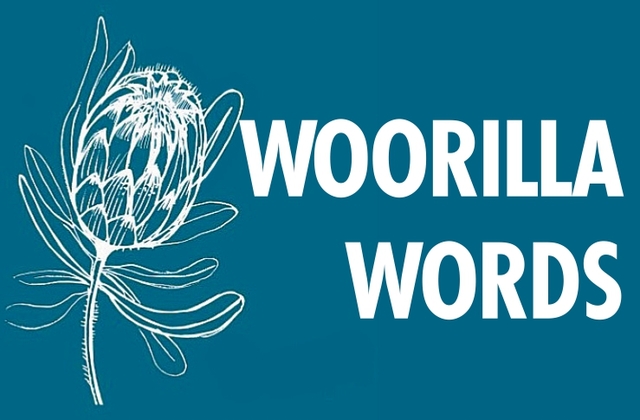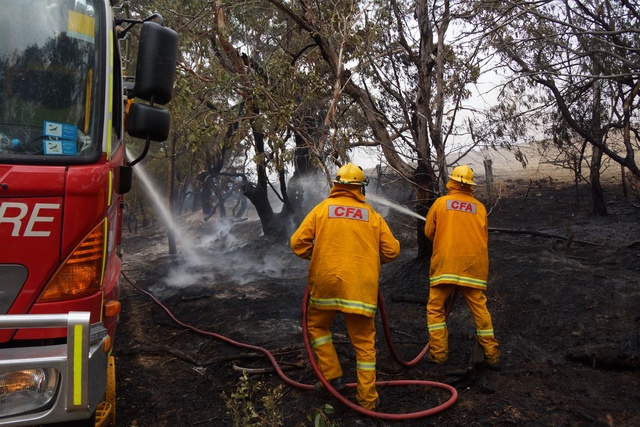You can smell Spring.
Spring in Victoria means changeable weather, pollen-heavy air filled with fragrances, the mix of native and imported blooms, from the gold of indigenous wattle against the dark native bush to the fields of exotic golden daffodils, fluttering and dancing in the breeze, to blossoming fruit trees.
Two Springs
In Victoria, spring arrives sideways —
four seasons in one day,
a burst of wattle gold against grey drizzle,
a sudden hailstorm pelting tulips
before the sun returns to polish
the leaves of plane trees along St Kilda Road.
Magpies guard their nests,
the air is thick with pollen and football chants,
and hay fever sneezes echo louder
than church bells.
Author: Year 8 student, Ameera A (Macquarie Fields High School)
It’s also a season of growth with native wildlife becoming more active—birds are nesting and returning to our backyards, reptiles are emerging from winter torpour, the resident rabbits are emerging to nibble on new grass.
All harbingers of the warm weather that is not too far away.
Longer daylight hours increase exposure to natural light, which regulates our circadian rhythm.
This helps improve sleep quality, stabilises mood and stimulates the brain to produce more serotonin (the feel-good neurotransmitter), boosting energy, optimism, and sociability.
Culturally, spring is tied to ideas of rebirth, new beginnings, and fresh starts.
This often translates into motivation to declutter, change habits, or start new projects.
An opportunity to reset life habits.
Psychologists sometimes call the boost people feel in spring the springtime effect: higher energy, greater optimism, and increased drive to engage with life.
It’s also the time when the urge to spring clean our homes is strong: to throw out accumulated clutter, open the windows, pull the winter bedding off beds, wash down smoky walls and mouldy bathrooms and let fresh spring air circulate through the house.
Could this not also be the time to extend the spring cleaning to our minds.
While we can’t just wipe out thoughts like cleaning the oven, we can use spring to work towards clearing mental clutter by letting go of mental junk like guilt, comparison and other negative feelings to make space for more balanced constructive thinking.
If social media make you feel bad about yourself, let it go.
Similarly the constant overload of news or information. There has been so much unsettling news constantly impacting on us.
Judith Wright often connected the natural world with emotional renewal.
In the following poem, she reflected on the hard times experienced during WW2 and how spring was a counterpoint to destruction and loss of life.
Now is the springing-time of the world,
the waking, the growing, the green;
after the darkness, after the war,
life stirs in the quickened vein.
From Spring After War
In the same spirit, Oodgeroo Noonucal’s poetry often touches on themes of personal resilience, struggle, and renewal, particularly from the perspective of her Indigenous heritage.
In The Dawn is at Hand, she speaks of hope and the strength to rise again.
The timeless beauty of the earth awakes,
with each new leaf and each bird song;
our hearts are lifted,
and hope is born again.
The idea of mental renewal by connecting with nature runs strongly through much of her poetry.
From going into the bush or woods, to planting some herbs or flowers to picking up a bunch of daffodils from a roadside stall all proof of our need for mental renewal by finding peace and perspective in connecting with nature.
So too in the poetry of Wendell Berry
When despair for the world grows in me
and I wake in the night at the least sound
in fear of what my life and my children’s lives may be,
I go and lie down where the wood drake
rests in his beauty on the water, and the great heron feeds.
Excerpt: The Peace of Wild Things by Wendell Berry
Berry expresses the idea of letting go of negative thoughts by connecting with the calmness and simplicity of nature, an act that metaphorically ‘cleanses’ the mind.
These poets share an ongoing dialogue about mental and emotional cleansing, whether that’s through reconnecting with nature, working through trauma and embracing personal renewal.
Their works offer a rich and diverse perspective on the process of ‘spring cleaning’ the mind and offers hope, healing, and perspective.
Just like a clean home makes us feel lighter and more in control, a ‘cleaner’ mind leads to better emotional resilience, more clarity and focus.
A more hopeful, empowered outlook.
However, we should perhaps also accept that one of the reasons for unhappiness is that our culture doesn’t teach us to embrace all emotions and experiences, the good and the bad, like guests that come and go.
Today confronting news reports often come with a warning that the content may distress or offend some viewers or listeners.
And it’s quite common to hear people admit that they have made a deliberate choice to disengage
from anything that disturbs.
The 13th century Sufi mystic poet Rumi in his poem The Guest House reflected on embracing all emotions and experiences, even the negative ones that come and go allowing negative feelings to pass through you rather than clinging to them.
This being human is a guest house.
Every morning a new arrival.
A joy, a depression, a meanness,
some momentary awareness comes
as an unexpected visitor.
The poem continues with the idea that we should welcome all thoughts, even the difficult ones, because they teach us something.
Rumi’s idea of “spring cleaning” is about allowing those negative thoughts to come and go, rather than allowing them to settle in.
Each of these poems touches on the theme of mental renewal, whether it’s through acceptance of all thoughts, detaching from negativity, or finding peace in nature or resilience.
They are all gentle reminders that the process of clearing your mind is often about embracing impermanence and finding ways to shift perspective.
Spring Cleaning your house can be a satisfying and also a meditative experience which may lead to renewed self-discovery and resilience.
So too is embracing the power of the natural world.
Woorilla Poetry Prize is now accepting entries: woorilla.org.au







